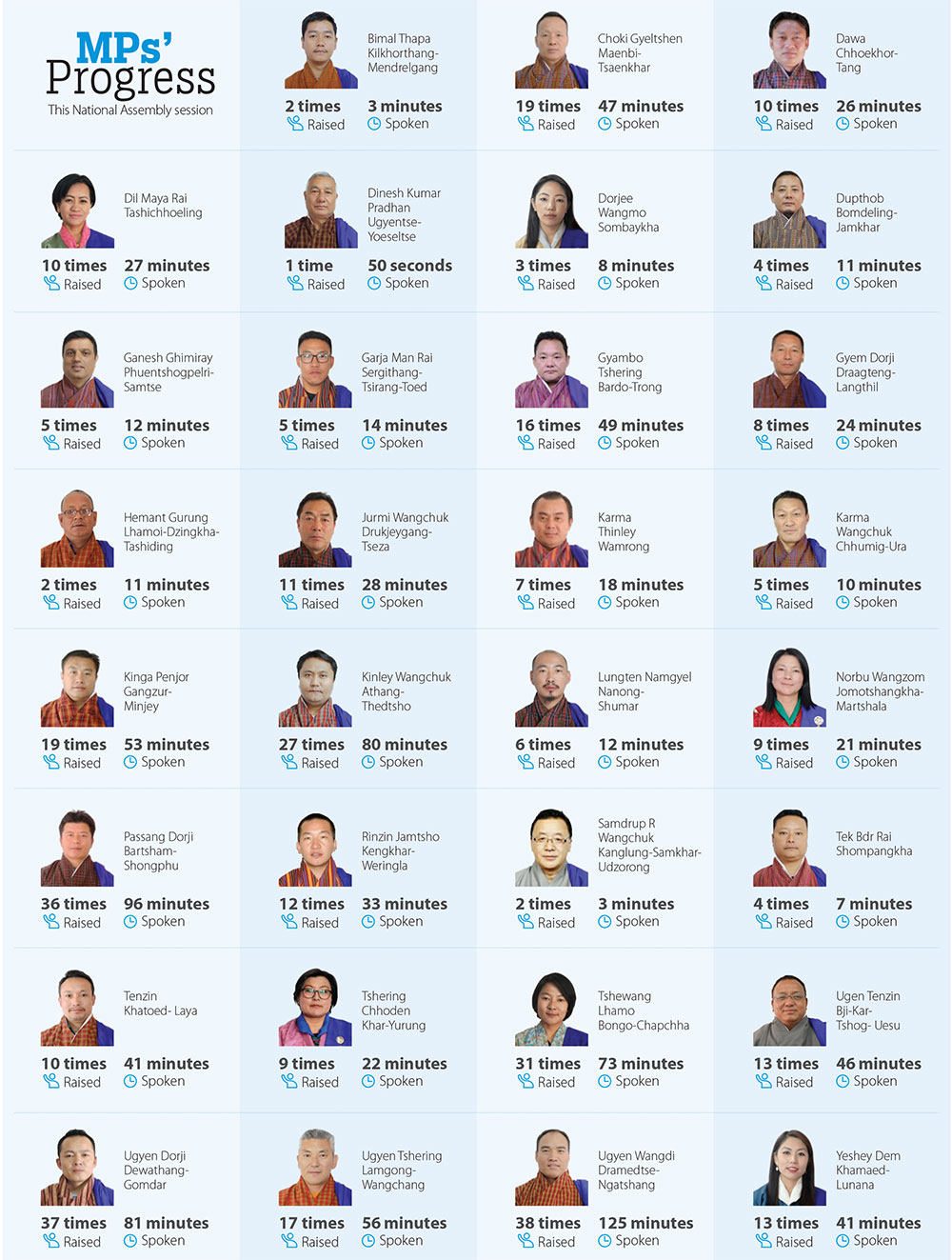… they point out systemic loopholes impeding their engagement
Tshering Palden
Two men argue about the performance of their Member of Parliament (MP) while watching a live session of the National Assembly on television in a restaurant in Thimphu.
“Our MP speaks too much rubbish beating around the bush,” says one. “Be thankful the person is at least raising some issues,” the other retorts. “There are some really quiet ones.”
“The main job of the MPs is to legislate and if they don’t speak when the law is being debated then what is their job? Those who speak up show that they have done research and consultations.”
Soon both agree that visibility for an MP is critical to impress the constituents.
Speaker of National Assembly Wangchuk Namgyel said judging the MPs by their participation during the live session alone is unfair. Even if an MP doesn’t stand at all, the person is still worthy because he has been elected by the public, he said.
“But I ensure that everyone gets a chance in every session. As a facilitator, ensuring inclusiveness is very important,” he said.

There are also others who get up all the time. Those speaking too many times, the Speaker said, could also be interpreted as imposing their ideas.
He said that there are many ways an MP can serve his constituency. Many of them have good networks and are successful in helping the people solve their problems swiftly.
MPs said that what happens during the session is only 30 percent of what they actually do. “Most of the work is done in the committees before the reports or recommendations are tabled for deliberation in the House,” National Council member from Haa, Ugyen Namgay said.
MPs said that the language barrier for some could be blamed to certain extent for them not speaking during the session.
“Sometimes the points are already made, so we refrain from speaking. No MP rises to show off their language skills or to be visible,” Ugyen Namgay said.
The on-going Covid-19 pandemic has impeded their functions as they could not visit their constituencies. The law requires them to visit their constituencies two times a year.
Speaker Wangchuk Namgyel said that the role of the MPs has become even more important in the face of the ongoing pandemic. “We have to disseminate information and create awareness among the population for the safety and wellbeing of our constituents.”
However, he said that including the MPs in the dzongkhag Covid-19 task forces would be going beyond their mandate. “It’s best left to the local governments who know it the best.”
Some gewog leaders said with a lot of reprioritisation in the budget and activities, many residents in the gewogs feel that the priorities and pledges have been compromised.
On the other hand, MPs said that there is only so much that they can do. No one consults MPs and at the end we get the blame for lack of development. “Even if we want to contribute constructively, there is no space. There’s a huge disconnect,” an MP said, echoing views of many others who shared about their issues.
Some MPs say that the success of their efforts in bringing about development in the gewogs also depends on their rapport with the Cabinet ministers and on the efficiency of local government officials. “A gup is more powerful than an MP.”
MPs, especially those from the east parts of the country, have to attend to many social obligations. “But it need not necessarily be a problem,” Jomotshangkha-Martshala MP, Norbu Wangzom said.
For many in the villages policy or laws don’t matter much to them. “Personal issues and their immediate needs matter to them more,” a National Council member, who interacts with his constituents everyday, said.


